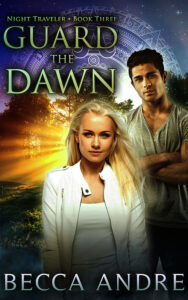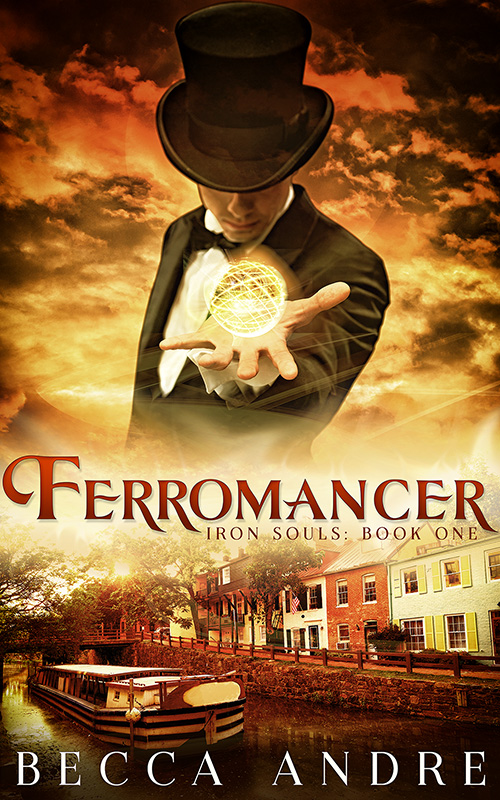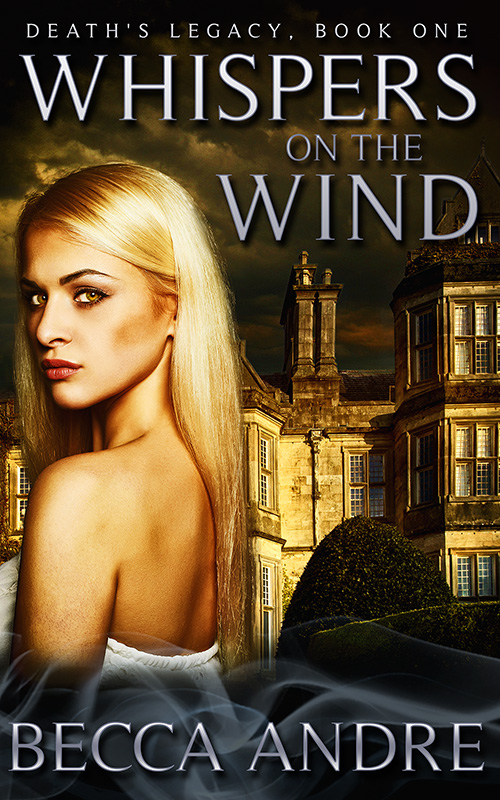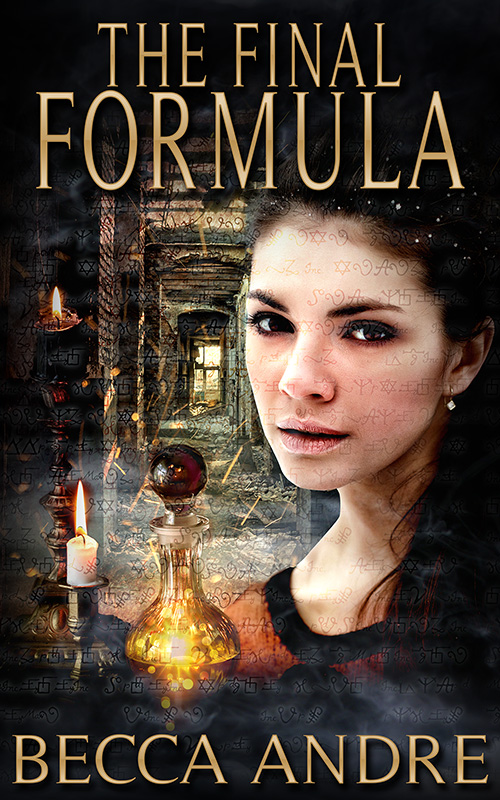Better With Age: Maturing as a Writer
Posted by Becca on Sep 11, 2015 in Writing | Comments Off on Better With Age: Maturing as a Writer
Aging is a gradual process. It’s not something you really notice until something changes. As a kid, you’ll pull on a pair of pants you wore last week, and they’re suddenly too short. As an adult, you realize it’s becoming harder and harder to make out the text on a page unless you find that perfect focal point. (No, I do not need bifocals. That’s what old people wear.) But it’s not just our physical bodies that change. As I’ve mentioned several times before, I have another series that I’ve been writing since I was in my teens. It currently stands at ten novels and lots of partials stories. One of these days, I would love to get this series off my shelf and out into the world, but it’ll take some work. The other day, I decided to start the process by creating the working file and importing some of the original book one. I couldn’t help reading it as I did, and oh my goodness, was it bad! It was so…childish. The immaturity of this first book really surprised me. I expected to find poor examples of the craft: bad grammar, passive voice, etc. (And I did.) But I thought the story itself would hold up to a certain extent. In my mind, it was still the great tale I wrote when I was in my late teens/early twenties. Now I still dig the premise, the basic plot, and the characters, but the execution…ugh. I’m so glad I didn’t publish anything back then. I had to mature as a writer. Now that’s not to say that there aren’t some incredible young writers out there. Young folks who can tell a story in a mature, insightful fashion. Me? Nope. I didn’t have the skill back then. There’s some debate as to whether I have it now. I still get an occasional reviewer who calls my characters juvenile. And since my characters are me (read my last post on write what you know), does that mean I’m young at heart? 😛 This whole experience got me thinking. (Yeah, scary I know.) What is mature writing? Why do my characters from twenty years ago act...
Read MoreWrite What You Know: My Take
Posted by Becca on Aug 30, 2015 in Writing | 2 comments
Write what you know. If you’ve been writing for any amount of time, you’ve probably stumbled upon this phrase. But what does it really mean? That can vary from author to author, but here’s my take on it… When I first heard write what you know, I was intimidated. What the heck did I know? My life was rather mundane. I didn’t have a tormented childhood to draw from. I hadn’t survived a life-threatening illness, got lost in the desert, or had to fend off a pack of zombies (except on the Xbox). Not that anyone would wish for tragedy, but it seemed that I was always hearing about writers who had these incredible life experiences that inspired their writing. Me, not so much. To take this argument one step further, I write fantasy. What do I know about magic? I’ve never experienced it, so how can I truly know anything about it. Ironically, it was the fantasy aspect that helped me figure it out. A writer friend challenged me to write what I know, but with a fantasy twist. I decided to give it a try. I would write about my dull life and throw in some magic. I started with my career. I’m a chemist, so my character should be…an alchemist. If you’ve read my books, you know what happened next. Yep, Addie was born. And because this was in response to that prompt, I wrote it in first person and set it in my everyday world. Up until this point, I had been writing in third person in a secondary world fantasy setting. I wrote the opening chapter with no real idea what the story was about. It was just a fun exercise that was little more than a character sketch. When I went back and read it later, I was stunned. It didn’t suck. For the first time in my life, I wanted to share something I had written. Add a couple of years, an online workshop, and a big dollop of courage, and I was ready to send The Final Formula out into the world. In the process, Addie taught me what write what you know really meant. I might not have experienced the adventures that she...
Read MoreThe Sound of Inspiration
Posted by Becca on Aug 15, 2015 in Writing | 5 comments
Today I thought I’d chat about something that, for me at least, is very important to the writing process, but one that readers never see—or hear, in this case. That something is… Nothing gets me in that special place where the characters come alive better than listening to my favorite tunes. If I’m stuck or need to get that next scene rolling, I pop in my earbuds and let the music take me somewhere else. I don’t typically write with music playing. I prefer quiet for that. But if I’m in a noisy environment, I will let my tunes drown out the distractions. Most of the time, music serves as a catalyst to get the creative juices flowing. I can use it in a controlled manner, or just let it take me where it will. For example, if a scene is giving me trouble, I will put on a song that gives me the feel I’m trying to capture, then force myself to imagine that particular scene. It doesn’t work every time, and sometimes it helps to change songs, but eventually the block will break free and the story movie will start rolling in my mind. Other times, I let the music take me to a new place in the story I haven’t yet imagined. In this case, I’ll choose a song at random, zone out, and let it take me where it will. I choose songs more for the feel it gives me rather than the actual lyrics. That’s not to say that the lyrics don’t influence me. Some remind me of a certain scene in a story, or a particular character. But I don’t get hung up on what the song is saying. Often, I’m so caught up in my imaginary world that I don’t even hear the words anymore. It’s just the pure feel the song inspires that carries me forward. Now you’re probably curious about what type of music serves as the soundtrack to my Final Formula series—or maybe you’ve figured that out already. Obviously, it’s not happy songs, sung in a major key about flowers and sunshine. I like it dark. I’ve always been a metal head—much to...
Read MoreWhat’s in a Name?
Posted by Becca on Apr 10, 2015 in Writing | 8 comments
In today’s post, I thought I’d chat a bit about what goes into the selection of a character’s name. Or at least, how I select one. 😉 Naming characters is one of the fun aspects of writing fiction, but it can be a challenge. Much like coming up with a name for a new baby, I want a name that sounds good to my ear, but one that also means something to me. Sometimes, I find the perfect name right off. Other times I search through baby name books and websites trying to find the name that fits the character I have in mind. I like to nail down my main characters’ names earlier on. It’s difficult to change a name once I’ve gotten to know him or her. With magical characters, I often chose something that correlates with their talent. It can be the meaning of the name, the sound of the name, or both. Era is derived from an Albanian word meaning wind, but it also sounds like the English word air. Rowan’s name is from a Germanic source and means red. It is also the name given to the red-berried rowan tree. In European folklore, the rowan tree was believed to be magical, and used to ward off evil. A nice match for a red-haired Fire Element who is one of the good guys. Sometimes my characters name each other. James’s charming brothers called his new friend the Addled Alchemist, and since she’s not the sort of person to let those jerks get the upper hand, she took the name Addie. My characters don’t always have a name when they first appear in my stories, so I’ll frequently use a placeholder. Typically, I’ll just grab a common everyday name. And the since the Final Formula is a contemporary fantasy series, I tend to leave the name as it is. I thought it logical to use names I hear in my day-to-day life, but I’ve discovered that a common name may not be the best choice. I have had a few comments that my names aren’t unique enough, and can sometimes run together in the reader’s mind. It’s too late to fix that...
Read MoreThe Quest Continues
Posted by Becca on Mar 1, 2015 in Writing | 6 comments
This one is for the writers in the audience, or anyone wondering how I go about crafting my stories. (Note the word crafting—it makes it sound like I know what I’m doing. Ah, the power of language.) To be honest, this post is more of an update on my ongoing quest to streamline my process. Back in September, I wrote a post about my attempt to refine the way I write. I’ve been a seat-of-my-pants (aka organic) writer all my life. As I mentioned before, I credit this to my early approach when I wrote just for fun and just for me. I wrote until I reached the end, slapped the handwritten pages into a ring binder, and moved on to the next book. No planning, no plotting, and no editing. Pure entertainment. (Yes, I’m wild and crazy like that. Who needs a night out on the town? Give me a pen and paper, and I’ll make my own fun.) Well, things are different now. Readers expect me to turn new books out in a timely fashion. Not only new books, but books that make sense. (Readers are so demanding!) So, when I started The Alchemist’s Flame, I decided to give outlining a try. I spent a couple of weeks filling out index cards and mapping the book scene by scene. I managed to get eighteen of my anticipated twenty-four chapters down. Good enough. I grabbed my keyboard and started in. By chapter two, it was clear I would need to tweak my outline. By chapter six, I’d blown it away. I went back and redid the outline—more than once—but I gradually came to realize that the story didn’t open up for me until I started to write the actual scenes. The characters had to talk to one another, and react to things before I could see where the story was truly going. Several of the key scenes in the finished book didn’t even exist in the outline. My conclusion: perhaps I’m not the kind of writer who can map out every scene before typing the first word. Bummer. It sounded so cool to work out all the kinks before I started the actual...
Read MoreThe End – Finally
Posted by Becca on Dec 27, 2014 in My Books, Writing | 8 comments
The end. I love writing those two words. Finishing that first draft is one of the best feelings in the world, in my opinion. It doesn’t matter how crappy it is, or how much editing it will take to make it readable. I made it to the end—an accomplishment that frequently seems impossible from mid book. Last week, I got to write those two words again. Yes, I finally finished FF3. It’s off with beta readers now. I’m afraid I won’t make a December release date as I was hoping, but it goes for editing in early January, and cover art mid-month, so it shouldn’t be too much longer. It frustrates me to no end that I can’t write faster. Yes, I do have a day job and a family to take care of, but four months seems like a long time to write a first draft. My writer friends assure me that the process gets, if not easier, at least more reliable the more you do it. And though I’ve been writing for decades, I’ve only been taking it seriously for the last year. Back in September, I wrote a blog post about improving my method. I decided to give outlining on honest try. It certainly helped, but I’m a long way from mastering that technique. Even if I don’t turn out to be the sort of writer who plots every scene ahead of time, I do think it’s incredibly helpful to have some kind of roadmap before I begin. So, I’ll keep trying to find the method that works for me. Thanks for your patience as I find my way. Hopefully, the next book will come together...
Read More



